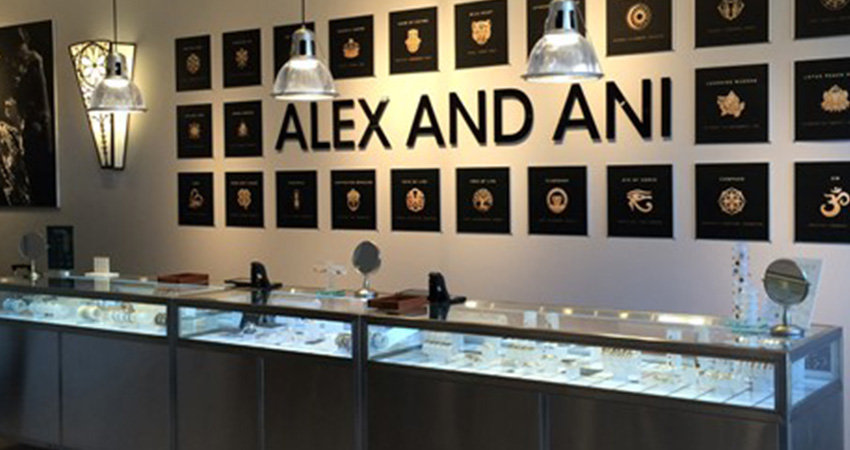Alex and Ani, once popular for its expanded charm bracelets and a smaller competitor of the global Pandora chain with its lab-grown diamonds, is closing stores and its Rhode Island headquarters as it assesses the state of its business in a post-pandemic environment with challenged economics.
The retail chain will close 20 stores while leaving seven open, according to news that broke in JCK. It once had more than 100 stores, 74 at the time of its Chapter 11 bankruptcy filing two years ago.
“Alex and Ani has been reimagining various aspects of our company over the past few years,” CEO Scott Burger said in a statement to JCK. “From moving our assembly operation, relocating our warehouse and updating our ERP system, we are collectively working towards a strategic omnichannel environment that supports shifts in retail and consumers’ wants and needs.”
Founder Carolyn Rafaelian said in an Instagram post she was disappointed at the decision to close the headquarters in East Greenwich, RI. The company, launched in 2004 with Rafaelian’s first patent, was named after her eldest daughters. In 2022, two years after she was ousted from Alex and Ani, Rafaelian launched a new jewelry venture called Metal Alchemist.
Alex and Ani, controlled by British private equity firm Lion Capital, listed between $100 million and $500 million in debt to hundreds of creditors at its bankruptcy filing, and assets of about the same value. Previously, a judge ordered Rafaelian to pay $5 million to Lion Capital to make good on a past due promissory note.
Like many others in retail and accessories targeting preteen girls, Alex and Ani has latched onto the Barbie movie phenomenon, which has even spawned a Snapchat AR experience. They’ve created a new Barbie line in the hopes of riding the massive buzz wave. That sounds a bit more encouraging than a line of evil eye jewelry. Alex and Ani also has collaborations with the Harry Potter and Dr. Seuss franchises.
During a presentation at Multichannel Merchant’s Ecommerce Operations Summit in 2014, Alex and Ani’s former director of operations said the company saw revenue spike from $2 million in 2009 to over $80 million in 2012, with new products offered each month.

